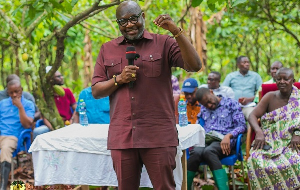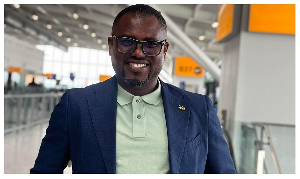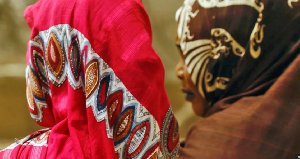Former UN Secretary-General Kofi Annan recently threw a veritable bombshell for global leaders’ discussion and action: decriminalisation of drugs! Here in Ghana, one imagines that it is one of the rare times that both the NDC and the NPP will have the same stand on an issue: that it’s unthinkable!
Mr Annan’s political bombshell, reported in the Daily Guide of February 24, was originally published in the German magazine, Der Spiegel, under the heading ‘Lift the ban! Kofi Annan on Why It’s Time to Legalize Drugs’.
His controversial, but well-presented prescription, preposterous though it may sound to some, evoked for me memories of a time in this country, in the 1980s, when there was a total ban on contraceptive advertisements for nearly one year. Yet, today, they are very much a part of the media landscape, brazen and suggestive.
Mr Annan argues that although drugs are dangerous, “current narcotics policies are an even bigger threat because punishment is given a greater priority than health and human rights.” Thus, “it's time for regulations that put lives and safety first.”
The article is targeted at the UN General Assembly special session on drugs scheduled for April 19 and 21. He wants world leaders to take the opportunity “to change course”.
“As we approach that event, we need to ask ourselves if we are on the right policy path. More specifically, how do we deal with what the United Nations Office on Drugs and Crime has called the ‘unintended consequences’ of the policies of the last 50 years, which have helped, among other things, to create a vast, international criminal market in drugs that fuels violence, corruption and instability?”
“Globally, the ‘war on drugs’ has not succeeded. Some estimate that enforcing global prohibition costs at least $100 billion (€90.7 billion) a year ….”
Yet, “prohibition has had little impact on the supply of or demand for drugs. When law enforcement succeeds in one area, drug production simply moves to another region or country, drug trafficking moves to another route and drug users switch to a different drug. Nor has prohibition significantly reduced use ….
“The widespread criminalisation and punishment of people who use drugs, the over-crowded prisons, mean that the war on drugs is, to a significant degree, a war on drug users – a war on people ….
“The West Africa Commission on Drugs, which my foundation convened, reported last year that the region has now become not only a major transit point between producers in Latin America and consumers in Europe, but an area where consumption is increasing. Drug money, and the criminality associated with it, is fostering corruption and violence ….”
Mr Annan points out that “drugs have destroyed many lives, but wrong government policies have destroyed many more …If our children do develop a drug problem, surely we will want them cared for as patients in need of treatment and not branded as criminals ….
“In what other areas of public health do we criminalise patients in need of help?”
He said the original objective of the UN Convention on Narcotic Drugs, was to protect the "health and welfare of mankind.", so there is need to refocus international and national policy on that.
There are four “critical steps” that the international community must take:
decriminalise personal drug use;
Focus on ensuring that drugs cause the least possible harm;
Look at regulation and public education rather than total suppression of drugs, which will not work; but,
The most risky drugs should never be available ‘over the counter’.
“It is time for a smarter, health-based approach to drug policy,” Mr Annan stated.
Reading Mr Annan’s thought-provoking piece, I recalled a similar argument a couple of weeks ago in The Week magazine of the UK (issue of 9 January), reporting an article first published in the Financial Times:
Misha Glenny writing in the Financial Times stated bluntly: “Western governments won’t ever prevail in the war on terror until they call a halt to the other war they’re waging – the war on drugs.”
Glenny argued that the governments should have learned by now that the illegal drugs trade fuels terrorism: “the profits from heroin have made the Taliban stronger than ever in Afghanistan; cocaine and marijuana trafficking in west and north Africa have given a huge ‘cash boost’ to organisations linked to Isis and al-Qa’eda.
“The trade is also responsible for breeding jihadis: many of Britain’s home-grown terrorists started off being jailed for drug offences and were then radicalised in prison.”
If they were freed from chasing drug users, the security services could then divert much-needed resources to fighting terrorism, Glenny pointed out. At a time of grave threat, the war on drugs isn’t just bad politics. It’s “downright immoral”, Glenny stated.
As I indicated above, currently the increasingly explicit contraceptive advertisements, especially on television, promoting condom use, safe sex, make it hard to believe that in this country there was a time that contraceptive commercials were forbidden.
Under President Jerry John Rawlings and the Provisional National Defence Council there was an 11-month ban that was lifted in June, 1987.
The predictable reaction here to Mr Annan’s call for a global change of policy on drugs is outrage in some quarters and opposition just as vehement as the official attitude to contraceptive publicity in the 1980s.
Or, dead silence.
For, this is an election year, meaning that even if any political leader – of the NDC, NPP, CPP, PPP, PNC or the NDP – sees merit in Mr Annan’s idea, they will not dare voice it for fear that it might cost their party votes in November.
In this country, as in many parts of the world, we have been conditioned from infancy to have an ingrained dread of even ‘wee’ (‘weed’ or Indian hemp), its consequences and users; so which of our leaders will back Mr Annan’s proposal?
Do any of our politicians have that courage?
Probably the answer is: not in this election year!
But going by the lesson of the ban on contraceptive advertisements, decriminalisation of drugs will come.
Doubtless some years from now, Ghana and other UN member countries will be congratulating themselves on this seminal initiative launched in 2016, of which Kofi Annan had the monumental courage to be a leading advocate.
It will be interesting to see how long it will take for the world to “change course”.
Opinions of Friday, 4 March 2016
Columnist: Ajoa Yeboah-Afari














